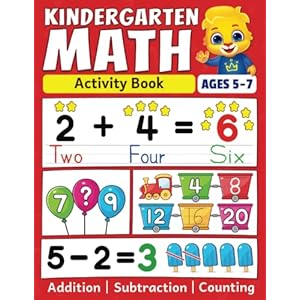
In case you’ve been in your relationship for any time period, chances are high there are little stuff you discover irritating about one another. “You at all times open issues and depart the wrappers on the counter for me to throw away.” “Effectively, you by no means change the paper towels after they run out, and I’ve by no means seen you order the canine’s meals when it’s operating low.” Does letting out these little annoyances after they happen additionally let off some steam? Is bickering at all times a nasty factor, or, executed nicely, can or not it’s an indication of a wholesome relationship? Specialists say a little lighthearted back-and-forth is actually regular, and advise on how you can hold it that manner.
Is bickering a nasty signal or a inexperienced flag?
We are inclined to suppose that in an ideal relationship, we’d by no means have something to battle about. However often, zero battle implies that each events are avoiding exhausting subjects and brushing issues off. “The problem is that avoidance doesn’t imply it goes away. As an alternative, it will get to develop in secret, at nighttime recesses of our minds, and switch into one thing a lot larger and uncontrollable,” says Reesa Morala, a licensed marriage and household therapist and proprietor of Embrace Renewal Therapy.
As an alternative, she says to consider a bit battle along with your associate as a standard factor. “Acknowledging the friction or talking it out loud can sound like bickering. It doesn’t suggest that your relationship is doomed or damaged. It means you’re a human being in a relationship with one other human being. And also you’re making room to speak issues out.”
Says Anat Joseph, a licensed scientific social employee and psychoanalyst, “Bickering can really be a wholesome sign up a relationship when it’s lighthearted and respectful. It offers companions a option to air out small frustrations earlier than they develop into bigger resentments. In some ways, it’s higher to acknowledge the little irritations quite than suppress them, as a result of unstated emotions can construct rigidity over time.”
How are you going to inform in case your bickering is unhealthy?
Bickering turns into problematic when it turns hostile or private, and if it’s taking place consistently, Joseph says. In case your arguments are eroding your respect for each other, contain name-calling, or depart both associate feeling dismissed or unsafe, it’s now not constructive.
Morales says if both occasion turns to the 4 Horsemen (coined by the well-known {couples} therapists John and Julie Gottman), your arguments may begin resulting in deeper emotional wounds. These can be criticism, contempt, defensiveness, or stonewalling.
It’s particularly necessary to acknowledge when your bickering has gone dangerous and to course-correct when you have youngsters. “Whether or not fights happen in harsh whispers after bedtime or are loud and violent in the lounge, youngsters know they’re taking place,” says Samantha Whiten, scientific psychologist and follow proprietor at Best Life Behavioral Health. “Kids are very delicate to the tone and environment of their properties. When battle happens frequently — let’s simply name this each different week or extra, and for violent fights any quantity is just too many — your youngster’s creating mind and nervous system is inundated with stress hormones. This early trauma units them up for hypervigilance, low shallowness, and elevated susceptibility to points later in life, each psychological and bodily.”
Your battle is negatively impacting your youngster in the event that they really feel like they must ally with one mum or dad over the opposite, or understand one mum or dad nearly as good and the opposite as dangerous. In case you discover them doing their greatest to be excellent, which will even be an indication they’re attempting to keep away from stressing you out any additional. Or, they might act out with a purpose to distract dad and mom from preventing.
Greatest Practices For Bickering, From Specialists
Wholesome bickering seems like “expressing frustrations in a manner that’s direct however not merciless,” Joseph says. As an alternative of claiming “You by no means clear up after your self,” you may attempt, “I really feel careworn when the kitchen is messy after dinner. Can we work out a greater system?” “Utilizing humor may also assist hold bickering mild and related quite than adversarial. The hot button is sustaining empathy, staying conscious of tone, and reminding one another that even small conflicts are about enhancing the connection, not tearing one another down,” she says.
Listed here are some useful tips to maintain battle constructive, courtesy of Morala:
- Begin your sentences with “I” to take duty for the way you’re feeling.
- Keep on with the information and “depart the seasoning within the kitchen,” as she places it. Making it spicy received’t assist.
- Ask your self why that is bothering you and communicate from that place. What’s the precise want?
- Supply a roadmap of how you can meet your wants.
- Hold the dialog brief, direct, and respectful.
- Keep in mind you’re talking to a teammate, not an adversary.
Right here’s how she would put all of it collectively if, say, your associate was on their cellphone when you had been venting a couple of aggravating occasion at work. “I felt harm and ignored if you checked out your cellphone whereas I used to be telling you about my day. I need to really feel like I matter to you and that you’re fascinated by my inside world. What that may appear like is setting apart a while the place you’ll be able to have a look at me after I’m talking and ask curious inquiries to get to know what I want within the second or what my perspective is.”
After all, you don’t must argue like an ideal angel on a regular basis — it’s simply not reasonable. However preserving these tips in thoughts might help you navigate the issues that trouble you in a a lot happier, more healthy manner.
Trending Merchandise











